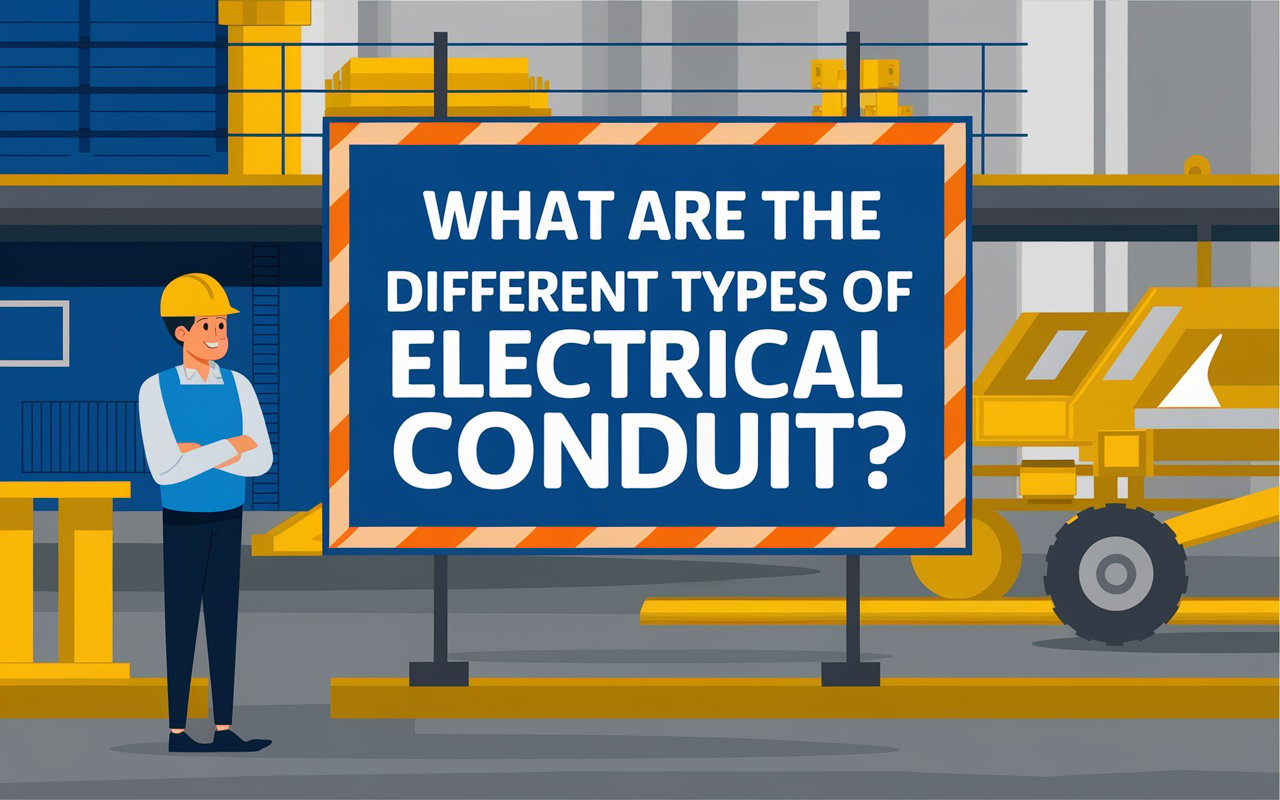目录
切换As an electrical engineer, I have seen firsthand the importance of choosing the right type of electrical conduit for any installation. Electrical conduit serves as a protective cover for electrical wires, keeping them safe from damage and preventing potential hazards such as electrical fires and electrocution. In this post, we will discuss the different types of electrical conduit to help you make an informed decision.
Overview of Electrical Conduit
Electrical conduit is a tube or duct that serves as a protective cover for electrical wires. The conduit can be made of metal, plastic or other materials. It is used to protect and route electrical wiring in a variety of settings including homes, commercial buildings, and industrial facilities.
The primary purpose of electrical conduit is to protect the electrical wiring from physical damage, moisture, and other environmental factors. It also helps to organize and route the wiring, making it easier to maintain and repair.
Types of Electrical Conduit
There are two main types of electrical conduit: metallic and non-metallic. Each has its own advantages and disadvantages, and the choice of conduit will depend on the specific needs of your installation.
Metallic Conduit
Metallic conduit is made of metal materials, such as steel, aluminum, or copper. It is a popular choice for industrial and commercial settings where durability and strength are important.
a. Rigid Steel Conduit (RSC)
Rigid Steel Conduit (RSC) is the heaviest and thickest of all the metallic conduit types. It is typically used in industrial applications where high levels of protection are required.
b. Intermediate Metal Conduit (IMC)
Intermediate Metal Conduit (IMC) is lighter than RSC but still provides a high level of protection. It is commonly used in commercial and industrial settings where durability is important.
c. Electrical Metallic Tubing (EMT)
Electrical Metallic Tubing (EMT) is the lightest and thinnest of all the metallic conduit types. It is commonly used in residential and commercial applications where flexibility and ease of installation are important.
Non-Metallic Conduit
Non-metallic conduit is made of plastic or other non-metallic materials. It is a popular choice for residential and commercial settings where ease of installation and low cost are important.
a. PVC Conduit
PVC Conduit is a popular choice for residential and commercial applications due to its low cost and ease of installation. It is also resistant to moisture and corrosion, making it ideal for outdoor applications.
b. HDPE Conduit
High-density polyethylene (HDPE) conduit is a durable and flexible option that is commonly used for underground installations. It is also resistant to moisture and chemicals.
c. Fiberglass Conduit
Fiberglass conduit is a lightweight and durable option that is commonly used in corrosive environments. It is also resistant to heat and UV radiation.
Comparison between Metallic and Non-Metallic Conduit
When choosing between metallic and non-metallic conduit, there are several factors to consider. Metallic conduit is generally stronger and more durable than non-metallic conduit, but it is also more expensive and can be more difficult to install. Non-metallic conduit is generally less expensive and easier to install, but it may not be as durable.
Factors to Consider when Choosing Electrical Conduit
When choosing the type of electrical conduit for your installation, there are several factors to consider. The environment in which the conduit will be installed is a key consideration, as is the specific application. Budget and code requirements should also be taken into account.
In conclusion, the type of electrical conduit you choose will depend on a variety of factors. It is important to choose the right conduit for your installation to ensure the safety and reliability of your electrical system. If you have any questions or need assistance in choosing the right conduit for your installation, don’t hesitate to contact a licensed electrician or conduit manufacturer.











